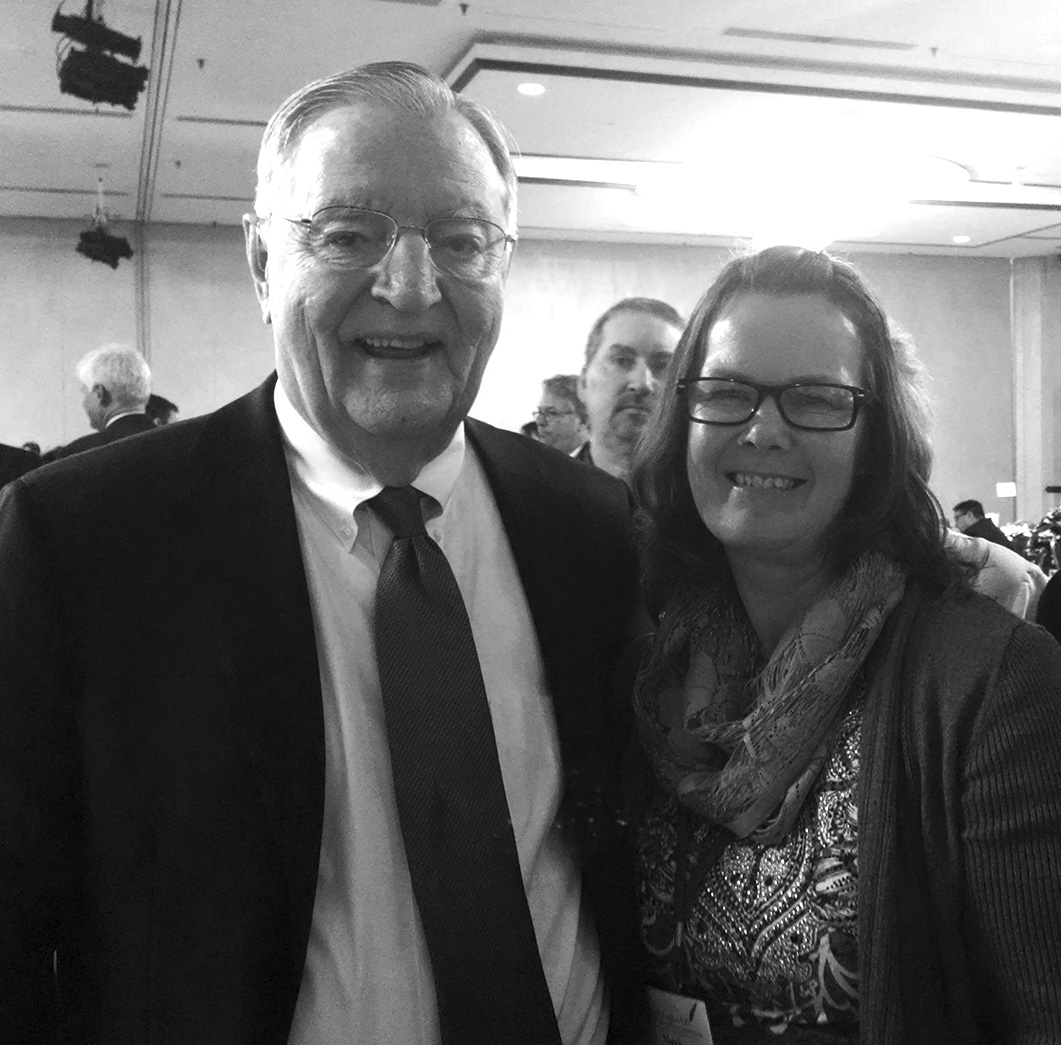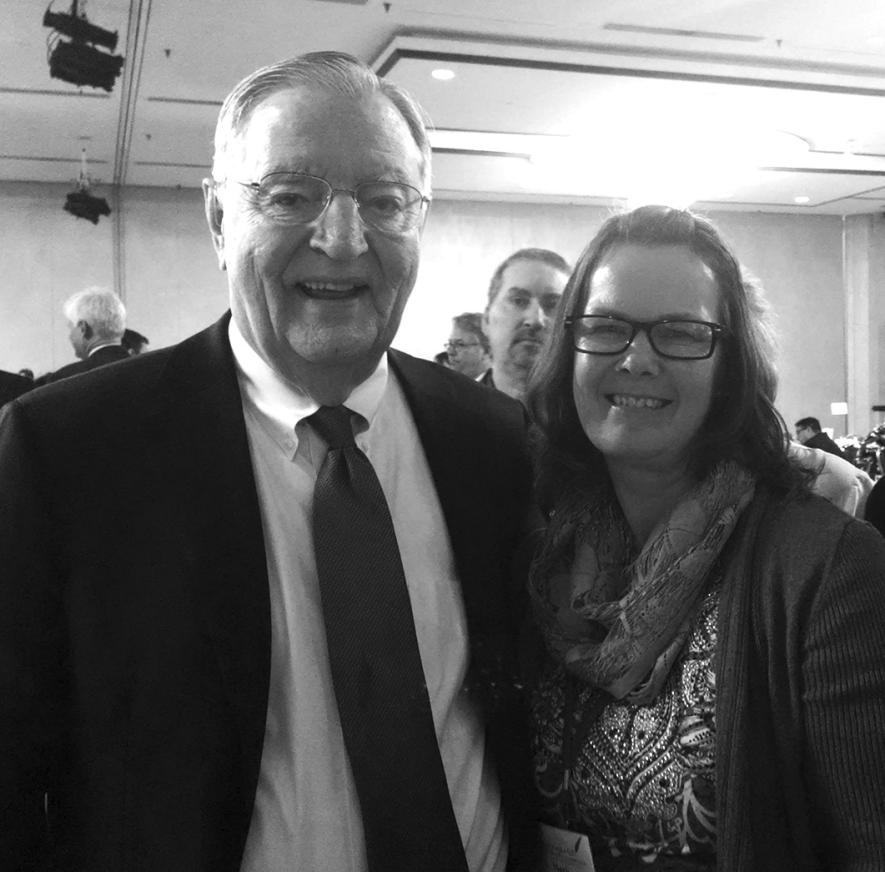
Having the opportunity to meet Walter Mondale recently brought back memories of 1984 and my first opportunity to vote in a presidential election.
I was 18 years old and a college freshman. Mondale was the Democratic presidential nominee and was the first to choose a woman as his vice presidential candidate.
When I shook hands with the 89-year-old at the Minnesota Newspaper Association Convention in late January, I thanked him for his vice presidential choice in 1984 and for his willingness to go against the establishment. That “breaking the mold mentality” was what drew me to his campaign.
“Did you do the right thing?” Mondale asked me as he thanked me for my vote. I nodded and he graciously posed for a picture.
And just think! I almost didn’t approach the former vice president of the United States, let alone have a picture taken with him. I am glad I did, though. That short conversation took away decades worth of what I perceived as an embarrassment from my college years.
I have been ashamed I spoke up publicly about that 1984 presidential campaign and my decision to vote for the losing side. Despite Mondale’s overwhelming loss in that election, he was gracious and honest about his campaign and still moves forward with his beliefs.
In a matter of a few minutes, I realized no one should be embarrassed by how he or she voted. At least they voted. Even better if a person could articulate why.
In 1984 I simply wasn’t verbally articulate when I was interviewed by a newspaper reporter on the campus of Augustana College. The thoughts I shared then for print led to 32 years of self-consciousness. Even today I can still see my picture in the newspaper with the quote underneath, “I don’t believe in polls.”
Opinion polls play an intricate role in today’s politics and are a quick way to gather people’s views on specific issues. At the time of my newspaper interview, polls indicated Mondale was behind President Reagan by double-digit numbers, indicating Reagan would win the presidential race in a landslide.
Reagan did win handily, and my statement of dismissing the poll results appeared silly.
One would think I would have forgotten all about the interview from three decades ago. After all, I don’t remember the reporter’s name, the questions asked or the photographer who snapped the pictures. I just thought it was cool to be in the newspaper. My brother, Arv, is the reason I don’t forget about the incident.
My distress comes from my word choice that day, along with my brother’s need to just make fun of his little sister.
My use of the word “believe” could have been explained in the article. (I have long since thrown the article away and cannot check for sure.) What I meant by that word is that polls have a margin of error, and depending on how and who completes the poll, the margin of error could swing the true vote in the other direction. Years of watching political campaigns and reporting on local elections have really taught me a thing or two — experiences I didn’t have as an 18-year-old.
And now, after listening to Walter Mondale and sharing with him why I voted for him so many years ago, I have become more circumspect about my perceived faux pas. Back then I just stated how I felt at that given time. We all change our opinions because life events and circumstances change us.
Walter Mondale, however, appears as though he hasn’t changed. He was someone I admired as a first-time voter and I still admire him today. Listening to his recent speech, he was up to date on current events and even bolstered my community purpose as a member of the press. He said newspapers are in the business of asking questions, finding facts and reporting the information. They are also responsible in forming public opinion.
Back in 1984 I politely told the reporter looking for facts on the local political scene and reporting those findings to the local community. Now instead of feeling mortified about the newspaper article, I feel thankful that I was a part of print history.
Thanks, Walter, for helping me to understand that my opinion counted and for putting that newspaper interview into perspective.



